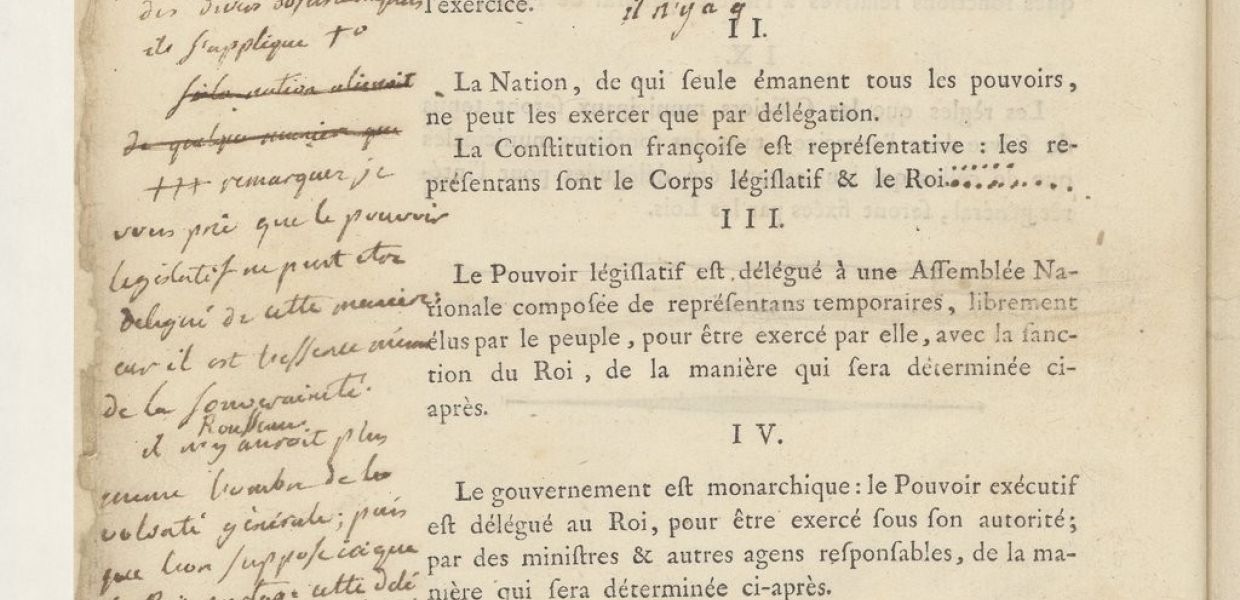Building an open layer over all knowledge: Europeana joins Annotation Coalition

Today, Europeana joins a coalition, Annotating All Knowledge. This informal initiative, announced by the Hypothes.is Project on 1 December, gathers over 40 scholarly publishers, platforms, and technology partners who seek to build “an open conversation layer over all knowledge” that “can transform scholarship, enabling personal note taking, peer review, copy editing, post publication discussion, journal clubs, classroom uses, automated classification, deep linking, and much more.” (Read the coalition's press advisory and announcement.)
This initiative especially recognizes the potential of annotations for scholarly activities, and aims to explore how interoperable annotations that follow open standards can be deployed as a meaningful, valuable layer on top of content.

Projet de constitution française de 1791 annoté par Robespierre, Bibliothèque Nationale de France (BnF), Public Domain.
This approach naturally fits Europeana’s vision, and especially the goal of Europeana Research, where sharing digital culture is positioned as the cornerstone of a data ecosystem where scholars can find and exploit cultural data to support their research activities and publish the results in a way that gives this cultural material new context. This creates a virtuous circle where potential for re-use grows incrementally.
Europeana and its partner projects have been involved in developing annotation solutions and applying this to research scenarios (Digitised Manuscripts to Europeana, Europeana Cloud, Europeana Sounds, The European Library, SEALINCmedia, etc.).
We are currently working on incorporating the W3C Web Annotation technology, a key component of the coalition’s proposed approach, into our data modelling and core services. For more information you can have a look at our most recent technical presentation on modelling and exchanging annotations (focusing on the ongoing work in the Europeana Sounds project), at the Semantic Web in Libraries conference.
Together with the other members of the coalition, we’re looking forward to openly sharing and discussing this vision, as well as our more concrete case studies and lessons learned from tackling the challenges of designing and implementing this scholarly annotation layer. We believe this is vital to identifying the best practices and technical solutions that will be of greatest value to our community, and to the researchers we want to serve.
Follow the progress of the coalition on Twitter at #AAKCoalition
